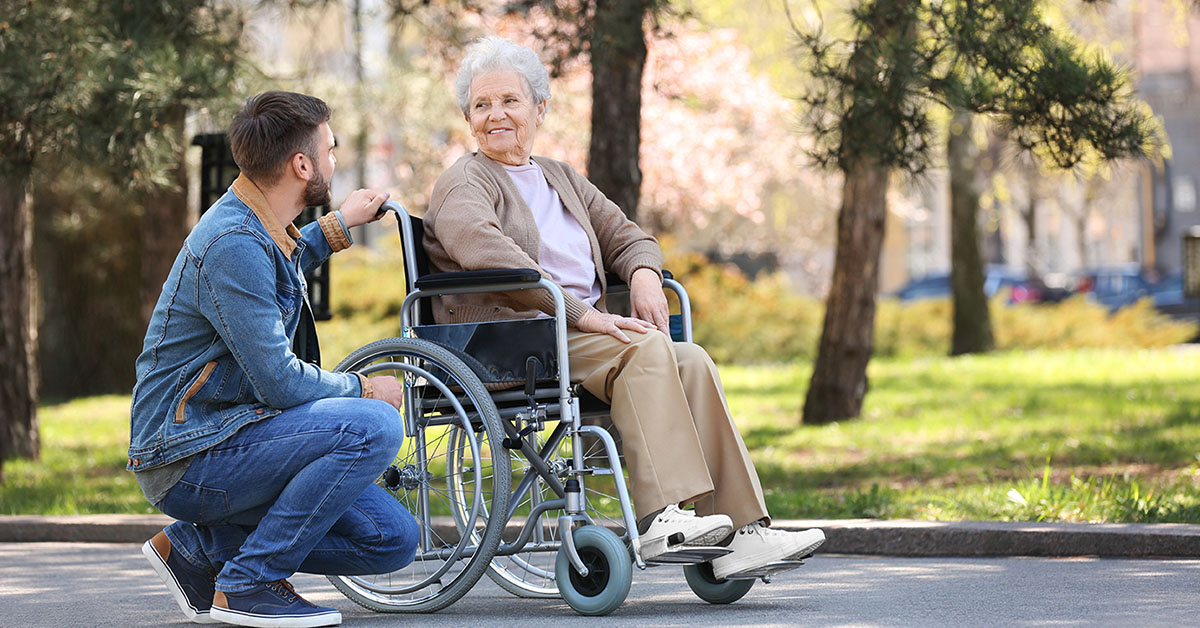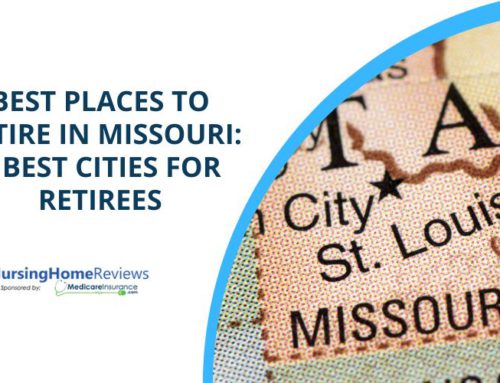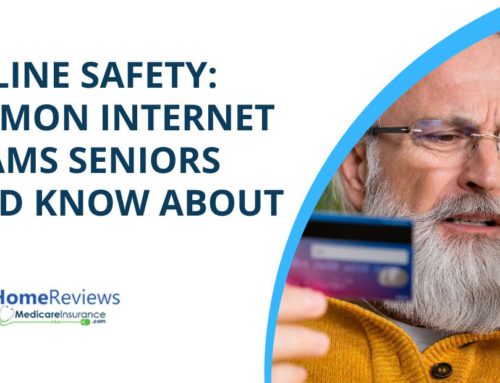
Is it time to consider a nursing home for my parent?
Deciding the right time to place an elderly parent in a nursing home or an assisted living facility is never easy, but if you are one of the 17.7 million Americans who is currently acting as a caregiver for an aging adult with specialized healthcare needs, remember that burnout is a very real possibility.
As much as your loved one means to you, your health and happiness matters too. Still, there are many factors to consider when thinking about long-term care for your elderly parent. Not only are elements such as cost, distance, and quality incredibly important, so too is your parent’s comfortability level and wishes.
So, when should a parent go to a nursing home? Well, the answer is actually quite complex and can depend on several factors. Learn more right here courtesy of Nursing Home Reviews.
Nursing home research you can count on.
Start comparing ideal nursing homes in your area today.
When should you move a spouse, parent, or loved one into a nursing home?
The truth is, there is no set age for a nursing home or a definitive diagnosis that means it is officially time to place someone in assisted living. However, there are many contributing factors that may play an important role in such a major decision.
Some individuals may require full-time assistance a lot sooner than others due to illness or accident, but this can occur at any age. Other times, a debilitating health crisis like a stroke or particularly disastrous fall could leave someone incapable of caring for themselves.
More commonly though, the warning signs that may point to an individual’s need for full-time healthcare assistance can be more subtle. Ask yourself a few of the following questions, and then let your answers help you make an informed decision.

Access key nursing home info today.
Check out nursing home ratings, reviews, and violation reports from the comfort of your very own home.
Is your loved one able to manage their own healthcare needs?
First and foremost, you should consider whether you feel your loved one is capable of managing their own healthcare needs. These needs can range from the medically necessary, like the ability to responsibly manage medication, to the custodial, such as the ability to maintain acceptable levels of hygiene and home maintenance.
For example, is your parent keeping up with the chores? Are their bills being paid? Are they able to acquire their own groceries? These are all vital signs that may offer additional insight into one’s ability to manage their own health and wellness.
Has your parent been experiencing significant memory loss?
While it is common to experience some degree of memory loss as we age, there is a fine line between the occasional brain fog, like misplacing the keys or TV remote, and serious disorientation, like trouble remembering where you are and who you are with.
Healthcare professionals claim that the following symptoms are signs that a much more troublesome memory issue is afoot:
- Repeating questions or conversation points over and over
- Getting lost in familiar places
- An inability to follow simple instruction
- Confusion about location, time, and familiar people
Do you feel as though your loved one is safe alone in their home?
When considering a nursing home as an option, one thing to routinely ask yourself is whether you feel your mom or dad is safe in his or her own home. Whenever possible, be sure to check your loved one’s living space for dangerous clutter, loose rugs, exposed electrical wires, or other dangers that may pose a fall or safety risk.
In addition, check to make sure that common household objects, such as dishes, tools, and toiletries are easy-to-reach. When visiting, watch carefully for worrisome incidents like missed medication doses, dropped glassware, difficulty climbing stairs, or trips and falls.
Is your loved one still able to drive safely?
In many parts of the country, the ability to drive and drive safely is paramount to achieving maximum quality-of-life. If you notice that your loved one has been having significant issues with reflexes, vision, hearing, or directional ability, this may be a sign that they are not quite up to the demands of operating a motor vehicle.
If you start to notice an increased number of dents, dings, or scratches on their car, or if your loved one has begun accumulating traffic tickets more often than usual, it may be time to intervene.
How socially active is your elderly parent?
Even for loaner-types, proper social engagement is considered vital to proper mental and physical health. Often, seniors are more prone to the devastating effects of isolation than others.
For this reason, you should check in on aging loved ones often to see if they are staying as active as possible, connecting with friends and relatives, or maintaining cherished hobbies. If your elderly parent seems to have lost interest in social activity, this may be another red flag.
What is your loved one’s typical mood?
Everyone experiences sadness, anger, fear, or other negative emotions from time to time, but the elderly are especially at risk for common mood disorders like depression and anxiety. Typically, this is due to the natural challenges of getting older, such as losing friends and feeling physically sub-par.
While many seniors maintain a positive outlook most of the time, a frightening change in mood is not impossible. If you start to notice mood swings that last longer than one might typically consider to be normal, this may indicate that your parent is struggling with depression or some other common mood disorder.
What if I feel like it might be time to place my parent in a nursing home?
If you have asked yourself the aforementioned questions and you find that your answers are perhaps not particularly inspiring, there is no shame in deciding that it may be time to move your parent into an assisted living facility. In fact, making major healthcare decisions alongside your parent is usually the best way to go about ensuring they are well cared for.
At Nursing Home Reviews, we can help you rate and review hundreds of local retirement communities in order to help you find the ideal facility. Via our site, you can research and compare nursing homes, access reviews and ratings, and view any outstanding violations right from the comfort of your sofa.
Register for an account today to start working alongside your loved one to compile a list of your favorite options!





